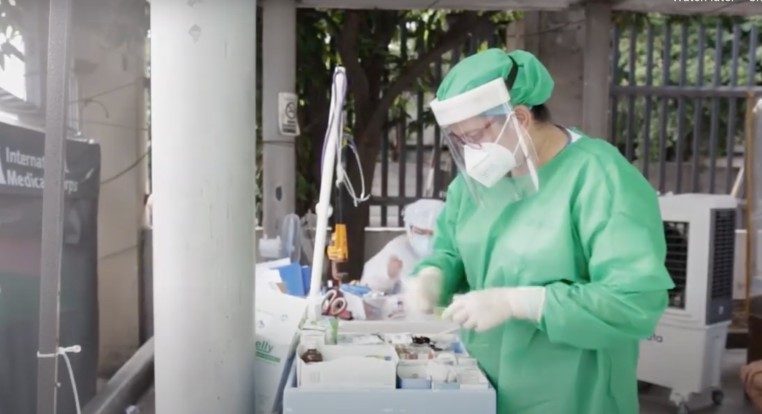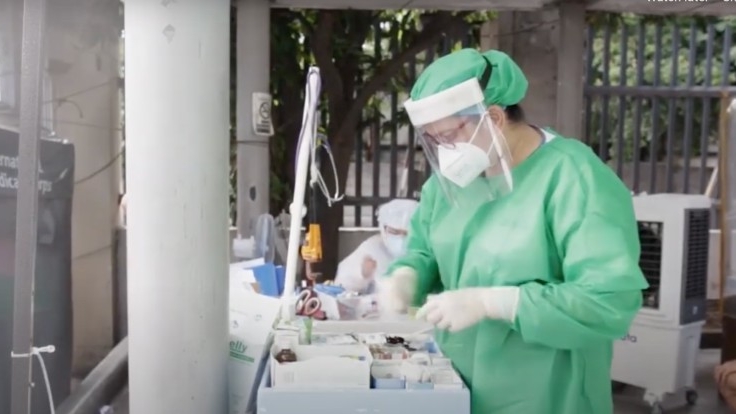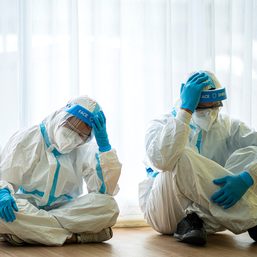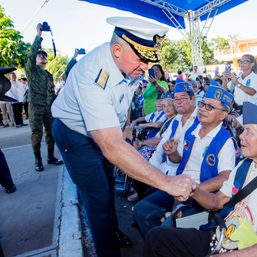SUMMARY
This is AI generated summarization, which may have errors. For context, always refer to the full article.

As the world celebrates World Humanitarian Day on Wednesday, August 19, international organizations and local groups pay tribute to the #RealLifeHeroes who put their lives on the line in the blind battle against the COVID-19 pandemic.
For the medical staff working at the Sta. Ana Hospital located in Manila City, they plead for one thing: to stop viewing healthcare professionals as the virus.
According to John Patrick Tan, an infection control nurse, healthcare workers like them constantly face the stigma of being seen as carriers of the virus. This adds to the unprecedented struggles they have to overcome at hospital wards.
“It’s hard for people to accept us… because people think we are the living virus,” he said.
Sanita Uy-Vistal, a medical lab scientist working at the same hospital, said that like everyone else, they also share the same fear of COVID-19.
“The biggest challenge for us is the fear of the virus because we [can’t] even know or see [it],” she said in a mix of English and Filipino.
This is not the first time frontliners faced discrimination due to their line of work. They have been banned from eateries and even denied entry into their apartments because of the stigma associated with their line of work.

Making sure their efforts do not go to waste, healthcare professionals have also been engaging the government with policy suggestions that are largely rooted in their experiences in the frontlines.
After appealing for MECQ in Metro Manila and nearby provinces last August 3, they’ve been working extensively with their respective community leaders by suggesting and proposing medical policies in handling the pandemic.
They’ve also echoed the call for a “demilitarized medical quarantine” and appealed to be provided with the appropriate salary and hazard pay.
Despite the risks of getting infected themselves and the challenges that go with the job, many frontliners like Tan and Vistal continue to push through their job, fueled by their passion for service.
For Jose Karganilla, an infection control nurse also working at the Sta. Ana Hospital, it’s how they’re able to extend a patient’s life that makes the job rewarding. Still, he shared how frontliners like himself are not exactly immune to feeling disheartened with the current situation.
Karganilla explained, “Whenever we discharge a patient, I tell them: ‘Good for you! You can finally go home,’ but at the same time, I want to tell myself, ‘They’re going home, but not me.'”
Vistal shared the sacrifices she’s been making to cope with the risks and restrictions posed by the pandemic. Her interactions with her family has been limited to video calls to avoid potentially putting them at risk as well.
“I hope people understand this, that we’re [willing] to [risk] ourselves.” she said.
In celebration of the World Humanitarian Day, UNICEF featured Vistal, Karangilla, and Tan in a video documenting their experience as COVID-19 frontliners.
Watch the full video below:

– with reports from Khaela C. Vijar/Rappler.com
Add a comment
How does this make you feel?





There are no comments yet. Add your comment to start the conversation.